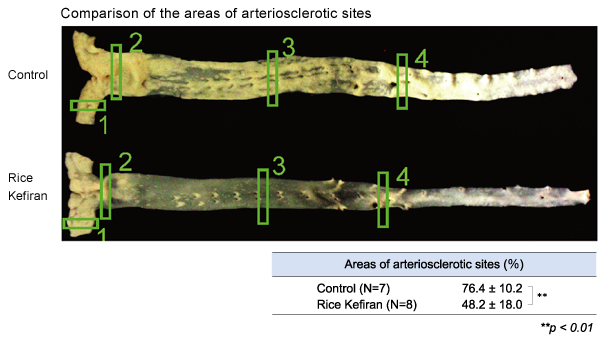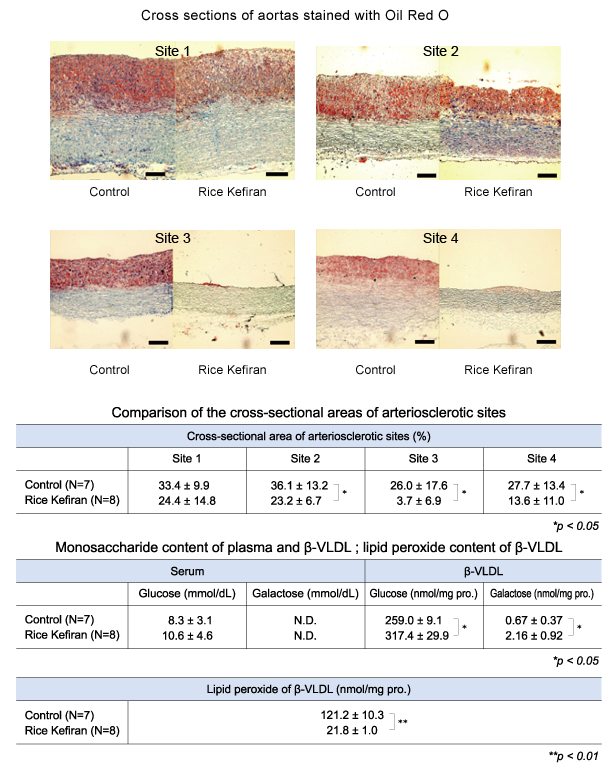Anti-arteriosclerotic effect
In a study of rabbits with experimentally induced atherosclerosis* with a high-cholesterol diet, Rice Kefiran ingestion was shown to inhibit the formation of aortic atherosclerosis. Compared with a group that ate a standard diet, the group that ate Rice Kefiran in addition to the standard diet, had significantly reduced levels of the lipid peroxides β-VLDL (“bad” cholesterol) in the blood. In addition, when the monosaccharide content in the β-VLDL was compared between the Rice Kefiran group and the standard diet group, the Rice Kefiran group showed significantly higher levels of glucose and galactose, which are constituent sugars of Kefiran. Based on these results, Kefiran, the active ingredient of Rice Kefiran, is believed to be absorbed via the gastrointestinal tract and to have anti-arteriosclerotic effects. Kefiran, therefore, has a clear biogenic function.
* Atherosclerosis is a type of arteriosclerosis in which foreign bodies, such as lipids and cholesterols, move sluggishly through arteries and build up in the inner layers, forming what are called atheromas.


Uchida M, Ishii I, Inoue C. et. al. 2010. “Kefiran Reduces Atherosclerosis in Rabbit Fed a High Cholesterol Diet”, Journal of Atherosclerosis and Thrombosis, 17 (9), 980-988
